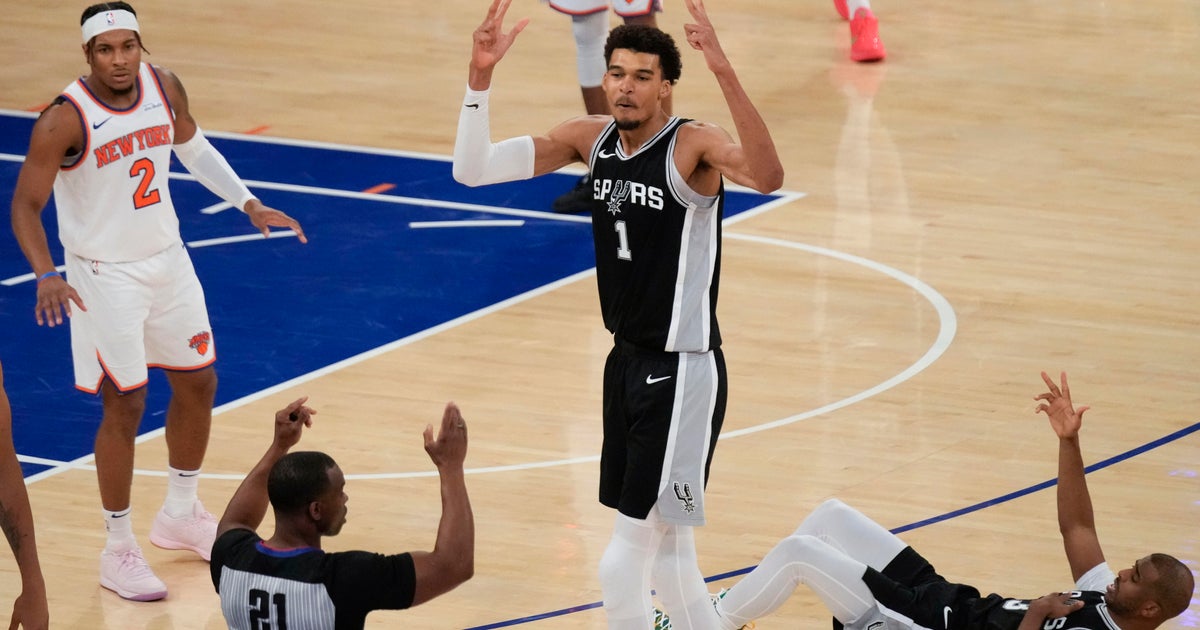Gitmo Detainee's Terror Trial Delayed In NYC
NEW YORK (CBS 2/ WCBS 880 / AP) -- The first civilian trial of a former Guantanamo Bay detainee was delayed Wednesday after a Manhattan judge banned federal prosecutors from calling a "giant" of a witness.
U.S. District Judge Lewis A. Kaplan blocked the government from calling a man who authorities said sold explosives to the defendant, Ahmed Khalfan Ghailani. Defense lawyers said investigators only learned about the witness after Ghailani underwent interrogation at a secret CIA-run camp overseas between 2004 and 2006.
"The court has not reached this conclusion lightly," Kaplan wrote. "It is acutely aware of the perilous nature of the world in which we live. But the Constitution is the rock upon which our nation rests. We must follow it not when it is convenient, but when fear and danger beckon in a different direction."
The government immediately asked for a delay of the trial, which had been expected to begin with opening statements on Wednesday, so that it has time to appeal the ruling, should it decide to do so.
LISTEN: WCBS 880's Irene Cornell reports
LISTEN: WCBS 880's Irene Cornell with military law expert Michael Farkas
The judge issued his written three-page ruling after a hearing three weeks ago in which the witness, Hussein Abebe, testified about his dealings with authorities. "The government has failed to prove that Abebe's testimony is sufficiently attenuated from Ghailani's coerced statements to permit its receipt in evidence," Kaplan wrote.
Prosecutors said Ghailani was in the terrorism business long before the September 11 attacks. He's accused of buying the explosives used in the deadly 1998 bombing of the American embassy in Tanzania.
The defense had asked the judge to exclude Abebe's testimony on the grounds that it would be the product of statements made by Ghailani to the CIA under duress.
On that point, Kaplan said, "Abebe was identified and located as a close and direct result of statements made by Ghailani while he was held by the CIA. The government has elected not to litigate the details of Ghailani's treatment while in CIA custody. It has sought to make this unnecessary by asking the court to assume in deciding this motion that everything Ghailani said while in CIA custody was coerced."
The judge noted that he had previously rejected defense motions to dismiss the indictment on the grounds that Ghailani was deprived of a speedy trial and that his treatment by the CIA was so outrageous as to require termination of the charges.
Susan Hirsch's husband was killed in the attack. "The trial is a way of coming back and saying 'We can rely on a rule of law'," she said.
In addition to re-igniting the debate over whether trying terror suspects in New York City costs too much and poses too much of a security risk, this trial was a big test on several other levels.
President Obama wanted to overcome opposition which would rather see this and other Guantánamo detainee trials conducted by military commissions.
"Just because we can try them in a federal court, we should ask ourselves 'should we?' Is that the right method to further the actual goal of gathering the intelligence that is necessary to disrupt clandestine cells?" said Paul Butler, former federal prosector.



